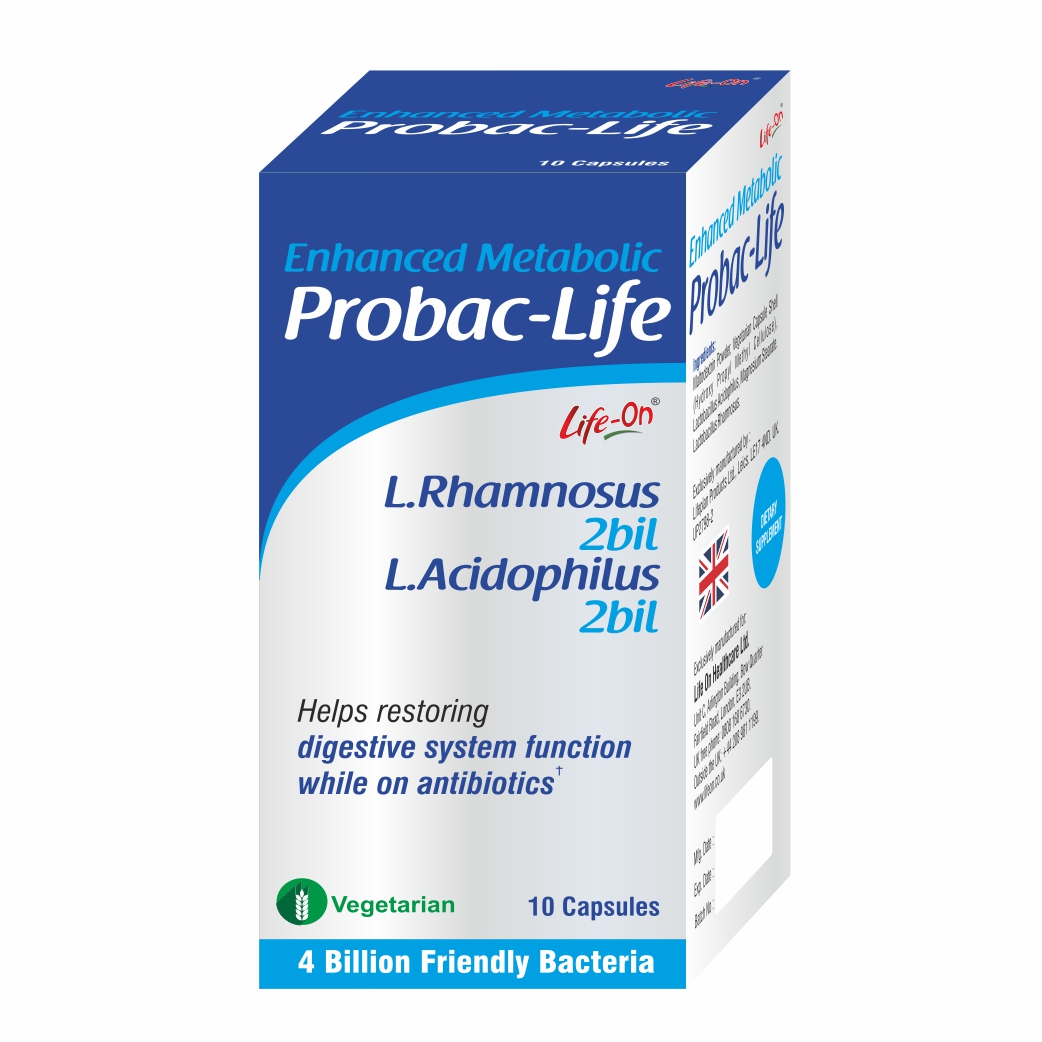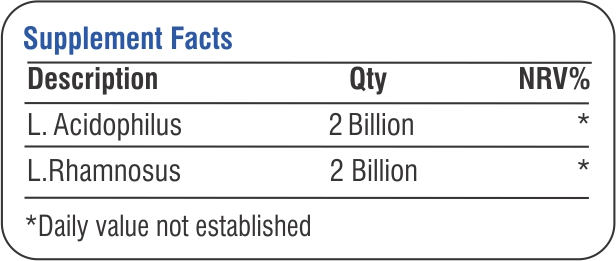

Product information
Probiotics are defined as live micro-organisms which, when administered in adequate amounts, confer a health benefit on the host(1).
Probiotics preparations involve the use of both single as well as mixture of microorganisms(2).
Probiotics tend to maintain the delicate balance between the gastro intestinal tract and the immunological system of the body. Whenever this balance is disturbed and disease develops. Probiotics competitively inhibit the over stimulation of immune system by pathogenic bacteria by adhering themselves to the gastro intestinal mucosa in place of pathogenic bacteria and thus inhibiting their colonization(2).
They have proved to be beneficial in the case of allergies/eczema, diarrhoea, hyperlipidaemia, Acquired Immune Deficiency Syndrome, liver cirrhosis, gastric ulcer, hypertension, inflammation, arthritis, inflammatory bowel disease, peptic ulcer and cancer etc. It is also beneficial in case of antibiotic resistance or antibiotic associated side effects(2).
Antibiotics, as substances that either prevent the growth of or kill a living organism, probiotics are considered as living drugs that can reduce antibiotic consumption and increase human health development. The consumption of these products is increasing worldwide because probiotics are generally regarded as safe. Anti-carcinogenic, anti-diabetic, anti-allergic and anti-inflammatory. As living organisms, probiotics, particularly Lacto bacillus species have beneficial therapeutic effects when ingested. The advantage of these probiotics in the prevention of antibiotic-associated diarrhea (AAD) has been proven through controlled trials who are undergoing antibiotic healing(3).
The human microbiome is overly exposed to antibiotics, due to their medical use. Microbiome alterations induced by antibiotics can also indirectly affect health in the long-term. The mutualistic microbes in the human body interact with many physiological processes, and participate in the regulation of immune and metabolic homeostasis. Antibiotic exposure can alter many basic physiological equilibria, promoting long-term disease. Excessive antibiotic use fosters bacterial resistance, and the overly exposed human microbiome has become a significant reservoir of resistance genes, contributing to the increasing difficulty in controlling bacterial infections(4).
Microbiota composition changes, non-resistant organisms capable of outcompeting potential pathogens. they alter the community substantially different repertoire of microbial-associated molecular patterns (MAMPS) to the receptors located in immune and epithelial cells. This will result in an altered stimulation of receptors such as NOD1 and the Toll-like receptors (TLRs), which can cascade down through a variety of immune processes, including lymphoid tissue development, T cell differentiation, neutrophil priming, production of antibacterial, and cytokine release(4).
Life On Probac-Life has perfect blend of 2 unique species of useful bacteria such as Lactobacillus Acidophillus, Lactobacillus Rhamnosus 2 billion per species.
It helps in the treatment of Antibiotic-Associated Diarrhoea. Treatment with probiotics has been used in clinical practice with L. Rhamnosus, Probiotic use is associated with a reduced risk of antibiotic-associated diarrhoea(6).
References
1.Health benefits and health claims of Probiotics: bridging science and marketing British Journal of Nutrition, page 1 of 6doi:10.10.17
2.Probiotics: A Medieval to Modern Era Prospective, International Journal of Toxicological and Pharmacological Research 2013; 5(3):63-68
3.http://www.microbiologyresearch.org/docserver/fulltext/jmm/ 64/2/137_jmm078923.pdf?expires=1532268646&id=id&accname=guest&checksum=839CEAF252CD7FB50B055C790FE43D8E
4.Antibiotics and the Human Gut Microbiome: Dysbioses and Accumulation of Resistances Front Microbiol. 2015; 6: 1543., Published online 2016 Jan 12.doi: 10.3389/fmicb.2015.01543, PMCID: PMC4709861
5.Probiotics: Their Potential to Impact Human Health, Council for Agricultural Science And Technology, Number 36 October 2007.
6.Health Benefits of Probiotics: A Review, ISRN Nutr. 2013; 2013: 481651, Published online 2013 Jan 2.doi: 10.5402/2013/481651, PMCID: PMC4045285.
